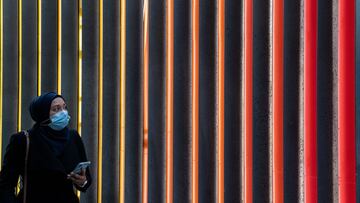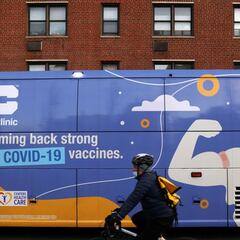How effective is Medicago's plant-based covid-19 vaccine? When will it be available to the public?
A new covid-19 vaccine may soon join the arsenal in the fight against the virus which has gripped the globe for two years, this one comes from a plant.

Pharmaceutical companies GlaxoSmithKline and Medicago announced positive results from phase three trials for the first plant-based vaccine against covid-19 on Tuesday. The two drugmakers have already filled to get emergency use authorization in the United States and the United Kingdom and will do so in Canada.
The vaccine was tested globally across six countries showing an overall 71 percent efficacy rate against all variants. The plant-based vaccine “demonstrated efficacy of 75.3 percent against covid-19 of any severity for the globally dominant Delta variant.”
Also see:
- Omicron cases tied to New York Anime convention
- What has WHO said about the covid-19 Omicron variant compared to Delta?
- Omicron highlights inequities in global vaccine distribution
- Armpit pain is a normal reaction to mRNA covid vaccines
Medicago plant-based vaccine imitates covid-19 spike protein
This latest candidate in the fight against covid-19 works similar to the other vaccines currently available triggering an immune system reaction to get the body to develop antibodies to protect against infection. Unlike the others though, an imitation spike protein, which the virus uses to hook onto and infect cells, was grown in genetically modified plants in Medicago’s labs.
The Canadian pharmaceutical company has been working with plant-based technology to produce Virus-Like Particles (VLP) for the past 20 years. VLP mimic native virus structures but “lack core genetic material” and thus “are non-infectious and unable to replicate.” However, the immune system can easily recognize them to produce the desired protection against infection. Additionally, the vaccine does not need to be stored at ultracold temperatures, instead it can be kept in standard refrigerators.
We've released the interim results of our Phase 3 trials. For more on this announcement, please visit our website https://t.co/RPl0Onls7B pic.twitter.com/lU2Fpi84uj
— Medicago (@medicagoinc) December 7, 2021
Two-dose regimen produces limited side-effects
Among the patients in the trial no serious or adverse symptoms were reported. The symptoms were generally mild to moderate, lasting at most a few days, even after the second dose. The two doses are given 21 days apart. The most common side effect being “a sore arm" according to Medicago medical officer Brian Ward speaking to NPR. He said this is probably caused by the adjuvant made by GlaxoSmithKline which is added to the vaccine to prime the body’s immune reaction.
New vaccine effective against a range of variants
The trials show that this potential new vaccine is especially effective as it was tested in "an environment dominated by SARS-CoV-2 variants." Whereas the other vaccines that have been approved “were conducted when only the ancestral virus was circulating, making direct comparisons impossible,” the pharmaceutical companies said in a press release.
#News for #investors and #media: Following today’s announcement, @medicagoinc will imminently seek regulatory approval from Health Canada for an adjuvanted #COVID19 vaccine candidate we are developing in partnership.
— GSK (@GSK) December 7, 2021
During the study a small number of severe covid-19 infections occurred among the 24,000 participants but none in the vaccinated group. The vaccine was 75.3 percent effective against the dominant Delta variant and 88.6 percent against the Gamma variant. “No cases of the Alpha, Lambda and Mu variants were observed in the vaccinated group,” while in the placebo group 12 cases were observed.
Related stories
Although the Omicron variant had not yet been identified when the phase three trial was underway, the companies feel that their vaccine should prove effective against new variants based on its efficacy against the Delta and other variants.
Medicago will have limited capacity if given emergency use authorization
Currently, Medicago is making its VLPs in North Carolina but is building a new facility to increase manufacturing capacity. According to Ward if given authorization by the Canadian government to distribute the vaccine, the drugmaker should been able to supply the 76 million doses it already promised to the Canadian government. The new manufacturing center being built in Quebec City won’t be online until late 2023.


